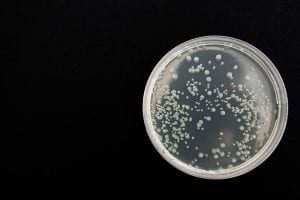A recent study found that a specific bacteria may be the distinguishing factor between cardiac sarcoidosis and other conditions that affect the heart.
This data suggests that this bacteria may be the causing the development of granulomas (abnormal collections of inflammatory cells), which is a common feature of sarcoidosis.
Researchers on the project discovered that testing for this type of bacteria could ultimately determine if a patient has cardiac sarcoidosis or another type of heart condition.
Basically, this discovery could lead to a lot of big things. The actual report is titled “Immunohistochemical identification of Propionibacterium acnes in granuloma and inflammatory cells of myocardial tissues obtained from cardiac sarcoidosis patients” and can be found here.
Sarcoidosis is a condition that consists of the growth of small inflammatory cells called granulomas in the lungs, lymph nodes, eyes, and skin. These granulomas, when collected in the body, often effect the normal function of these organs.
As of now, very little is known about the cause of sarcoidosis, and there is still no cure for the disease. However, there are treatments available that have been proven effective, and some cases of sarcoidosis go away on their own.
The researchers involved in this study are all from Japan; researchers at Tokyo Medical and Dental University teamed up with colleagues from Hokkaido University Graduate School of Medicine to give, they believe, more solid evidence that this bacteria causes sarcoidosis.
This team of researchers found granulomas in 62% of the sarcoidosis patients they tested. Of these granulomas, they found that 63% tested positive for the bacteria P. acnes.

Importantly, these researchers did not find this bacteria in the inflammatory legions of patients with other heart conditions. This evidence was stronger proof for their claim that this specific bacteria is sarcoidosis-related and not related to other heart problems.
Previous studies that found this bacteria in sarcoidosis patients were not able to prove that the bacteria would be absent if the disease were not there as well.
This research is big because it solidifies the idea that P. acnes is associated with sarcoidosis, and possibly even the driving force behind the disease. This information could change the way treatments are developed in the future and will definitely aid in properly diagnosing sarcoidosis patients. To read more about this research, click here!






